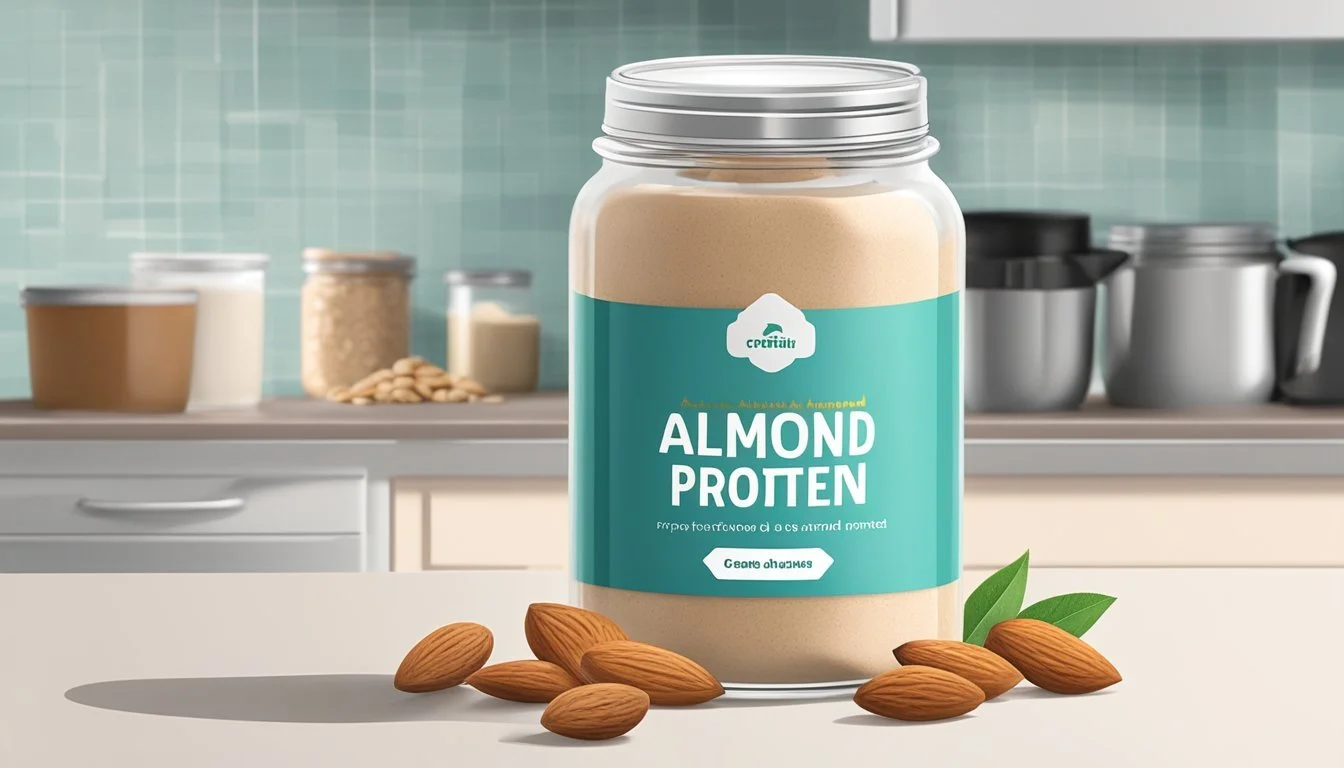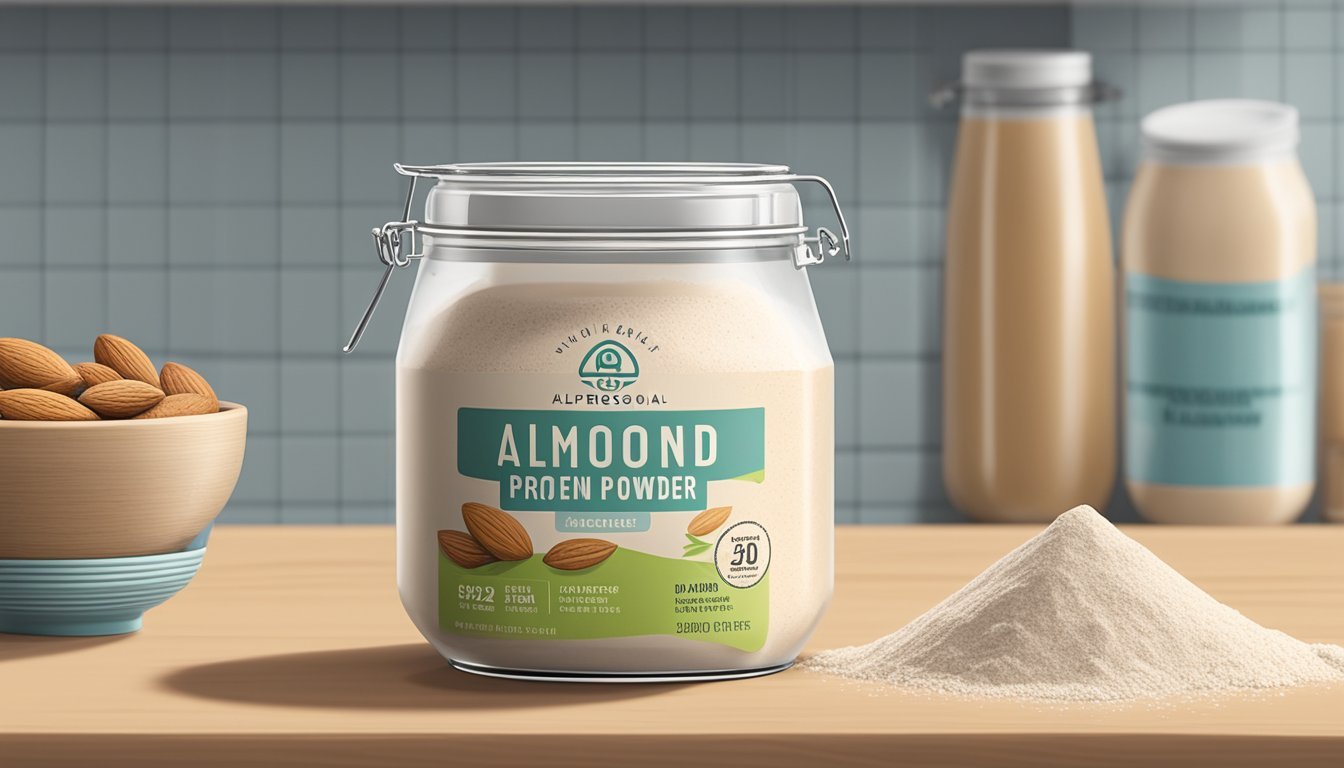Does Almond Protein Go Bad?
Shelf Life and Storage Tips
Almond protein, derived exclusively from almonds, is a highly nutritious source of protein. Like many other protein powders, almond protein powder does have a shelf life. Typically, almond protein powder can last between 9 to 18 months if stored properly. Factors such as additives and emulsifiers can help extend this shelf life, but it’s still essential to check expiration dates and storage conditions.
Made by removing most of the saturated fat through cold pressing, almond protein powder offers a higher protein content per calorie and gram without the bad fats. This makes it an appealing choice for those seeking a plant-based protein option. The key to ensuring its longevity lies in proper storage, typically in a cool, dry place away from direct sunlight.
Moreover, the health benefits of almond protein are significant, contributing essential vitamins and minerals. By keeping these powders well-stored and checking their expiration dates, consumers can ensure they are getting the most nutritional value without compromising health.
Almond Protein Basics
Almond protein offers numerous nutritional advantages, supporting heart health and aiding digestion. It also stacks up well against other plant-based proteins like pea and soy.
Nutritional Profile
Almond protein is derived from almonds, which are nutritionally dense. A serving of almond protein powder typically contains about 20 grams of protein. It is rich in essential vitamins and minerals like Vitamin E, magnesium, calcium, and potassium.
Almond protein also provides healthy fats and fiber, which are essential for overall health. The protein is free from saturated fats, making it a healthier option. It's suitable for those with lactose intolerance or who follow a plant-based diet.
Benefits for Heart Health and Digestion
Almond protein can support heart health in several ways. The healthy fats present in almonds help reduce bad cholesterol levels. Vitamin E acts as an antioxidant, preventing oxidative stress and reducing the risk of heart disease.
It's also beneficial for digestion. The fiber in almonds promotes gut health and regular bowel movements. This, combined with magnesium, can improve digestive processes and support metabolic functions.
Comparison With Other Plant-Based Proteins
When compared to other plant-based proteins like pea and soy, almond protein stands out for its nutritious content and digestibility. Almond protein contains all essential amino acids, though it may be lower in lysine.
Soy protein often matches almond protein in terms of protein content but can cause intolerances in some people. Pea protein is another popular plant-based option, which is hypoallergenic and highly digestible. However, almond protein has a better micronutrient profile due to its high Vitamin E and healthy fats content.
By weighing these benefits, one can see that almond protein is an excellent choice for those looking for a nutritious, plant-based protein option.
Shelf Life and Storage
Almond protein powder, like other almond-based products, has specific storage requirements to maintain its freshness and nutritional quality. Proper storage is essential to prevent spoiling and ensure the powder retains its efficacy.
Proper Storage Conditions
Almond protein powder should be stored in a cool, dry place away from direct sunlight. Refrigeration can extend its shelf life significantly, especially after the packaging has been opened. Opt for airtight containers to prevent moisture and contaminants from getting in.
Unopened packages generally last longer, often up to 24 months. Once opened, it's best to use the protein powder within six months to maintain quality. Frequent temperature changes should be avoided, as they can degrade the product.
Signs of Spoilage
Even with optimal storage, almond protein powder can spoil. Changes in color, texture, or smell are key indicators. If the powder develops a sour or rancid odor, it should be discarded. Clumping or a noticeable change in texture can also signal contamination.
Inspecting the expiration date and any "best-by" labels is important. Mold and unusual spots might appear if the powder has been exposed to moisture. Using clean utensils when scooping the powder can help avoid introducing bacteria.
Impact of Storage on Nutritional Quality
Improper storage conditions can affect the nutritional quality of almond protein powder. Heat and humidity can cause the degradation of proteins and other vital nutrients. Storing the powder in a refrigerator can help preserve these nutrients over time.
Exposure to air will oxidize the powder, diminishing its quality and effectiveness. Proper sealing and storage are crucial to maintaining its potency throughout its shelf life. Regularly checking the aroma, texture, and appearance can help ensure the powder remains in good condition.
Almond Protein in Diets
Almond protein is versatile and can benefit various diet plans. It offers a high protein and fiber content, which is essential for several dietary needs.
Inclusion in Specialized Diets
Almond protein fits well into numerous specialized diets.
For those on a gluten-free diet, almond flour is a popular substitute for traditional wheat flour. It is naturally gluten-free and rich in protein, aiding in maintaining muscle mass. Almond butter can replace dairy butter in recipes, giving a rich, nutty flavor due to its high-fat content.
People managing diabetes benefit from almonds due to their low glycemic index. Including almonds in the diet helps stabilize blood sugar levels, providing sustained energy. They also offer a good amount of fiber and healthy fats, supporting cardiovascular health.
Managing Food Allergies and Intolerances
Almond protein can be an excellent option for individuals with certain food allergies and intolerances.
For those with a lactose intolerance, almond milk is a common alternative to cow's milk. It's lower in protein compared to whole almonds, but it provides a dairy-free option that's gentle on the digestive system.
However, it’s important to be mindful of nut allergies. Almonds are a common allergen, and those with nut allergies should avoid all forms of almond protein, including almond flour and almond butter. Always check for cross-contamination and read labels carefully when considering almond-based products.
Incorporating almond protein thoughtfully can address specific dietary needs and constraints, ensuring nutritional adequacy and variety in meals.
Culinary Uses
Almond protein powder is a versatile ingredient that can be incorporated into various recipes, from baked goods to beverages. Its nutritional benefits and mild flavor make it a popular addition to many dishes.
Almond Protein in Baking and Cooking
Almond protein powder works well in baking and cooking due to its high protein content and nutty flavor. It can be substituted for a portion of flour in recipes to enhance the nutritional value. Common uses include:
Pancakes: Add almond protein powder to pancake batter for a protein-rich breakfast.
Cookies: Replace a part of the flour with almond protein in cookie recipes to make them more nutritious.
Muffins: Incorporate it into muffin batter for an added boost of protein.
The powder helps in creating gluten-free recipes, making it ideal for those with gluten sensitivities. Note: Adjust liquid ratios when adding almond protein powder, as it can alter the moisture content of the batter or dough.
Enhancing Smoothies and Shakes
Almond protein powder is excellent for enriching smoothies and shakes. Its smooth texture blends well with fruits, vegetables, and liquids, enhancing the protein content without changing the taste significantly. Popular combinations include:
Fruit Smoothies: Mix almond protein powder with fruits like berries, bananas, and spinach for a nutritious drink.
Post-Workout Shakes: Combine with almond milk, a banana, and a spoonful of peanut butter for recovery.
Green Smoothies: Enhance green smoothies with almond protein and a mix of kale, apple, and cucumber.
Adding almond protein powder to these beverages ensures they are both satisfying and nutritious, catering to those looking to increase protein intake in a delicious way.
Homemade Almond Milk Preparation
Almond protein powder can be used to make homemade almond milk rich in protein. The process is simple and allows for customization:
Blend: Mix almond protein powder with water in a high-speed blender until smooth.
Flavoring: Add natural sweeteners like honey or dates, and a pinch of salt for taste.
Strain: Use a nut milk bag or cheesecloth to strain the mixture, removing any pulp to achieve a smooth texture.
Homemade almond milk is fresh, free from preservatives, and can be fortified with additional nutrients based on personal preference. This alt milk provides a protein-rich alternative to regular dairy milk suitable for various dietary needs.
Consumer Considerations
When selecting almond protein, several factors are essential for ensuring the product meets your nutritional needs and personal preferences. Pay attention to the protein content, product labels, and consumer reviews to make an informed choice.
Choosing the Right Almond Protein
Consumers should first consider the protein content. Almond protein powders vary in the amount of protein per serving, typically reported in grams. For example, some brands offer 15 grams of protein per serving. Additionally, evaluate the calories and saturated fat content, especially if dietary restrictions are a concern. High-quality products generally have low saturated fat due to the cold-pressing process that removes most of it.
Understanding Product Labels
Reading the product label is crucial. Labels provide information on the presence of sweeteners or other additives. Consumers should look for products with minimal additives and natural ingredients. Additionally, labels often list the complete amino acid profile, confirming the presence of essential amino acids. Pay attention to the expiration date to understand the shelf life and storage requirements.
Reading Reviews and Comparing Brands
Reviews can offer valuable insights into a product's quality and consumer experiences. Look for reviews that discuss flavor, mixability, and any side effects. Comparing brands side-by-side can help identify which product offers the best balance of nutritional value and taste. Popular brands often have detailed reviews and ratings, providing a comprehensive view of their pros and cons. Use reputable review sources for unbiased opinions.
Health Implications
Almond protein provides significant benefits to heart health and cholesterol levels, but it may also have some potential side effects, such as digestive discomfort.
Effects on Cholesterol and Heart Health
Almond protein is associated with positive impacts on cholesterol levels and heart health. Almonds are rich in healthy fats, fiber, and antioxidants, which help lower bad LDL cholesterol and raise good HDL cholesterol.
Studies have shown that regular consumption of almond protein can reduce total cholesterol levels and promote cardiovascular health by decreasing oxidative stress and inflammation. Additionally, almonds contain nutrients such as magnesium and vitamin E, which are vital for heart function.
Incorporating almond protein into the diet may support overall cardiovascular health by contributing to balanced cholesterol levels and reduced risk of heart disease.
Potential Side Effects
Though almond protein offers various health benefits, it may lead to some digestive issues. Common side effects include cramps and bloating, particularly in individuals sensitive to nuts.
The high fiber content in almond protein can sometimes cause gastrointestinal discomfort if consumed in large amounts or without adequate water. Also, some people might experience allergic reactions, manifesting as itching, swelling, or difficulty breathing, and should avoid almond protein.
Moreover, excessive intake of almond protein could lead to an imbalance in nutrients. For instance, consuming too many vitamins and minerals can result in adverse effects, highlighting the importance of moderation.







